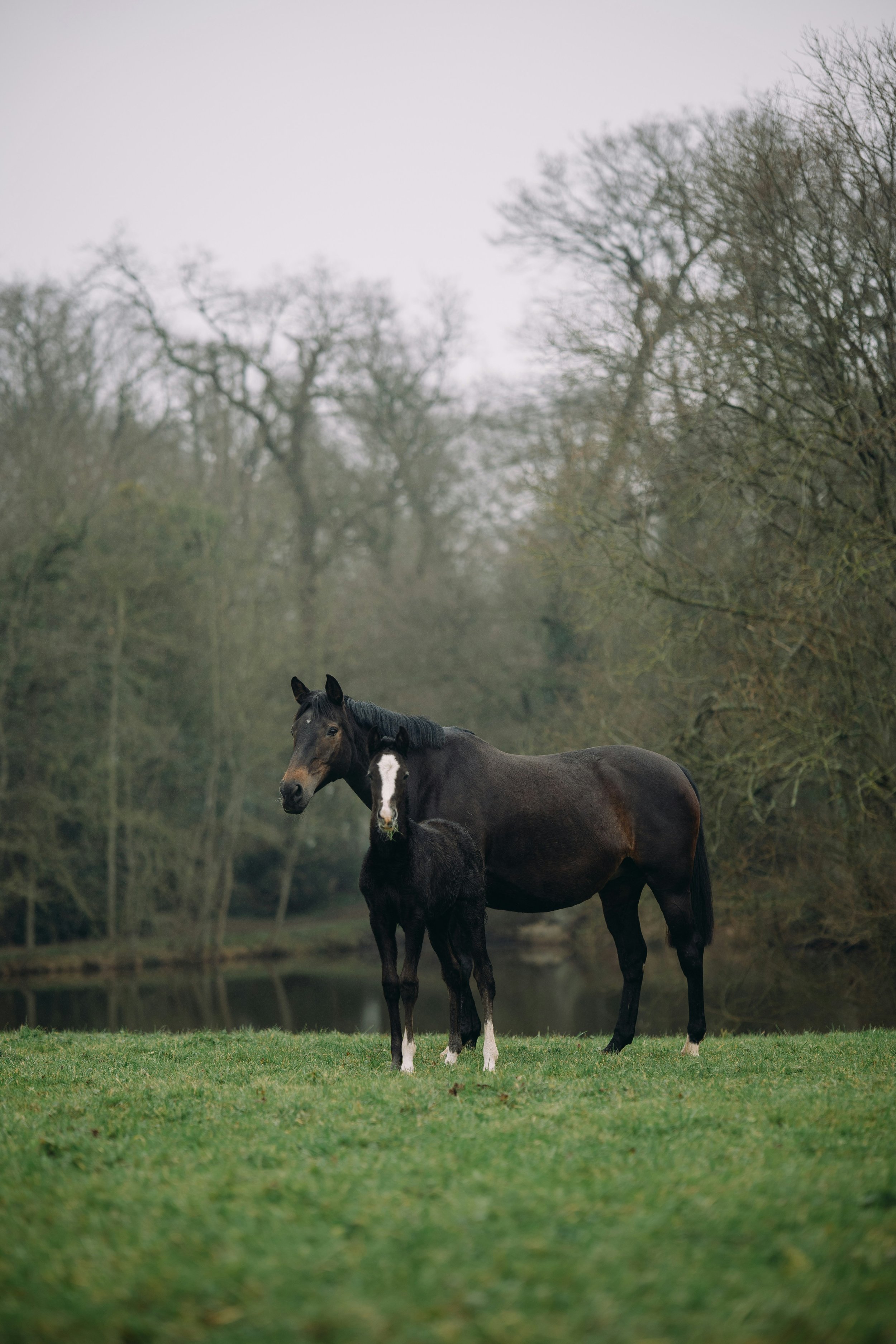
Rotavirus - Foal Diarrhea
Rotavirus is a major cause of infectious diarrhea in foals and has been documented to cause 50% and up to 90% of foal diarrhea cases in some areas. Rotavirus is transmitted through fecal-oral route and usually results in damage to the small intestinal absorption capabilities resulting in severe, watery diarrhea. Although death from rotavirus is very low (<1%), up to 50% of susceptible foals can get rotavirus. Most foals that develop diarrhea will not require medical intervention. However, many can get dehydrated and require fluids and veterinary care. It has been documented that over 70% of foals will have one diarrheal episode prior to weaning other than the typical foal heat diarrhea. Many owners commonly mistake diarrhea around 30 days to also be a type of foal heat diarrhea, but this frequently is rotavirus.
Farm hygiene is imperative when trying to prevent the spread of rotavirus through your heard. Other than your typical foal heat diarrhea, a foal with diarrhea must be isolated away from other foals and pregnant mares. A foal with diarrhea should be treated as infectious unless proven otherwise. This is especially important in foals less than 60 days of age when most cases of rotavirus occur. Isolation includes protective clothing such as, gloves, gowns, and shoe covering, worn prior to entering the stall and disposed of afterwards. Foot baths outside of the stall have been shown to be fairly ineffective at disinfecting footwear. The disinfectants are deactivated when in the presence of organic debris on the bottom of the shoes. Separate equipment such as grooming equipment, thermometers, mucking forks, and wheelbarrows should be used with the sick foal. The sick foals stall should be cleaned last. All manure and dirty bedding should be isolated from other animals either in a dumpster or compost pile. No dirty bedding or manure should be spread on the pastures of hay fields. Stalls should be disinfected after every mare and foal. Stall floors, such as rubber or concrete, are easily cleaned and disinfected. Wood and dirt floors are very difficult to clear of infectious agents like bacteria and viruses. Bleach has been shown to not be as effective as some of the commercially available products. A commercial product called Virex II 256 has been shown to be effective against many of the infectious agents that cause diarrhea in foals. Surfaces need to be washed of organic debris prior to using the commercial disinfectants because most are deactivated in the presence of organic debris like feces. After stalls are cleaned and bedding has been disposed of. All equipment should be disinfected in the commercial disinfectant by soaking for 10 minutes.
Other than farm management, vaccination is the only current method to reduce the incidence of rotavirus on a farm. The only available vaccine contains inactivated rotavirus and is indicated for the administration to pregnant mares to enhance concentrations of colostral immunoglobulins against rotavirus. Pregnant mares should receive the vaccination 3 times at 7, 9, and 10 months of gestation. The vaccination has been shown to decrease the incidence and severity of rotaviral diarrhea on farms that historically had annual rotaviral diarrhea cases. It is imperative that the foal receive an adequate amount of colostrum after birth. If the foal does not receive enough colostrum and has failure of passive transfer, high rotavirus plasma can be administered. There has been no evidence to suggest that the vaccine will prevent rotavirus when administered directly to newborn foals.
The veterinarians at Conley and Koontz Equine Hospital highly recommend that all pregnant broodmares get vaccinated for rotavirus prior to foaling. If your foal develops diarrhea please contact us immediately to discuss your treatment options. A lot of foals that develop diarrhea can maintain their own hydration through nursing, but many can get dehydrated and require medical intervention.
Ryan Rothenbuhler DVM
Diplomate, American College of Veterinary Surgeons - Large Animal